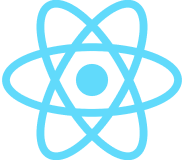Bangalore House Price Prediction

Introduction
In a city characterized by its ever-evolving real estate landscape, the Bangalore House Price Prediction case study takes center stage. It's a narrative of overcoming challenges through data-driven innovation. This journey unveils the process of developing a system that predicts house prices accurately, addressing hurdles and ultimately crafting a user-friendly platform. In the bustling real estate market of Bangalore, where each property holds unique value, this project becomes a beacon of hope for those seeking clarity and precision in their property-related decisions.
Client Approach and Needs
Our client approached us with a clear objective: to develop a precise Bangalore House Price Prediction solution. Recognizing the dynamic nature of Bangalore's real estate landscape, they sought a data-driven tool to provide accurate price predictions, empowering both buyers and sellers. Their vision emphasized merging data science with real estate expertise to create a potent predictive model. This need set the stage for our Bangalore House Price Prediction project, aligning with our commitment to data-driven decision-making in real estate.


Process & Story
Our journey into the Bangalore House Price Prediction case study unfolds with a clear vision—to empower individuals in the dynamic real estate market with precise price insights. The initial stride involved defining crucial parameters and data formats essential for crafting a robust prediction system. This led us into an extensive research phase where we delved into the intricate web of factors influencing property prices in Bangalore. We aimed to decipher the connections between location, property characteristics, and market trends, setting the stage for our predictive model's development.
The Problem
The central challenge in the Bangalore House Price Prediction case study was twofold: acquiring and consolidating a comprehensive dataset for Bangalore's real estate market, complicated by diverse data sources and formats, and handling null values within the dataset, crucial for predictive accuracy. Overcoming these data-related challenges was pivotal for building a robust house price prediction model.
The Challenges
Data Collection:
Gathering a comprehensive dataset of Bangalore house prices was the initial challenge. Real estate data can be scattered across various sources and formats, making it time-consuming to acquire and compile.
Handling Null Values:
Null values are common in real estate datasets due to missing or unrecorded information. Handling these gaps in the data required careful consideration, as they can significantly impact the accuracy of price predictions.
Location Data Format:
Addressing location information, which arrived in a different format, required a specialized approach. We used one hot encoding to effectively reconfigure this data, making it compatible with our modeling process.

Solutions
The project proceeded with the application of three regression models:
- 1. Linear Regression: This model uses a linear approach to establish the relationship between input features and house prices. It's a fundamental yet effective model for predicting real estate prices.
- 2. Decision Tree Regression: Decision trees are adept at capturing complex relationships in data. Decision Tree Regression was tested to determine if it could better capture nuances in the house price data.
- 3. Lasso Regression: Lasso Regression, a variant of linear regression, was also explored for its potential to improve predictive accuracy.
Grid Search CV
To select the most suitable model among the three, a Grid Search Cross-Validation (CV) approach was implemented. This technique systematically tested different model hyperparameters, allowing us to identify the configuration that provided the best predictive performance.

Model Development
With a robust dataset in hand and data preprocessing complete, the journey of developing the Bangalore House Price Prediction model kicked into high gear. The selected regression models—Linear, Decision Tree, and Lasso—were subjected to intensive training. Each model delved into the intricate patterns and factors influencing house prices in Bangalore. Fine-tuning, hyperparameter optimization, and thorough testing were carried out to ensure that these models were finely tuned to provide the most accurate predictions possible. This stage marked the culmination of our efforts to build a model that could decipher the complexities of the Bangalore real estate market and offer valuable insights to both buyers and sellers.

Real-time Testing
The ultimate litmus test for the Bangalore House Price Prediction model was its real-time performance. Real-world data, reflective of the dynamic nature of the Bangalore real estate market, was fed into the system to assess its predictive capabilities in a live scenario. This real-time testing phase was crucial in gauging the model's effectiveness in providing accurate and up-to-the-minute house price predictions. The results obtained in real-time testing validated not only the model's accuracy but also its reliability, reaffirming its utility as a valuable tool in the fast-paced world of real estate in Bangalore.
User-Friendly Integration
In our commitment to making the Bangalore House Price Prediction model accessible and beneficial to a wide audience, we focused on user-friendly integration. We seamlessly incorporated the predictive model into an intuitive web application. This approach ensured that anyone, from prospective buyers to seasoned real estate professionals, could effortlessly access and utilize the predictive capabilities of the model. Users were able to input property details and instantly receive accurate price predictions, facilitating informed decisions in Bangalore's dynamic real estate landscape. This user-friendly integration marked the successful transition from a sophisticated predictive model to a practical tool for all stakeholders in the real estate market.

Tools & Techniques

Machine Learning

Python

Flask

React JS
Conclusion
The Bangalore House Price Prediction case study demonstrates the intricacies of predicting real estate prices in a dynamic market. Challenges in data collection, null value handling, and location data formatting were overcome using appropriate techniques. The application of Linear Regression, Decision Tree Regression, and Lasso Regression provided insights into different modeling approaches. Finally, Grid Search CV helped identify the most suitable model for accurate house price predictions. This case study serves as a testament to the value of data-driven solutions in the real estate sector, aiding both buyers and sellers in making informed decisions.
